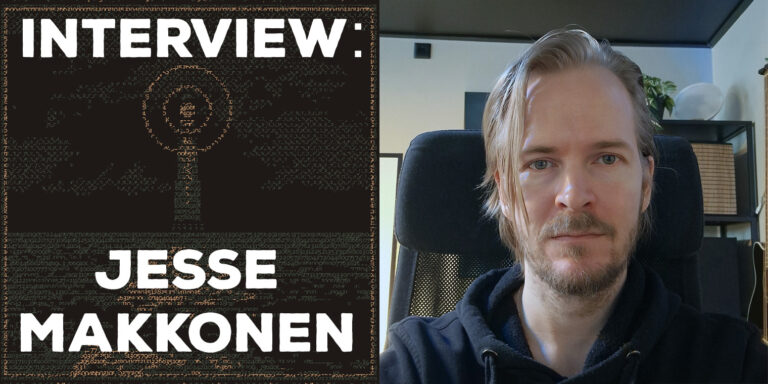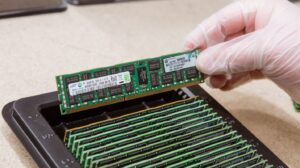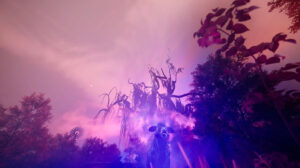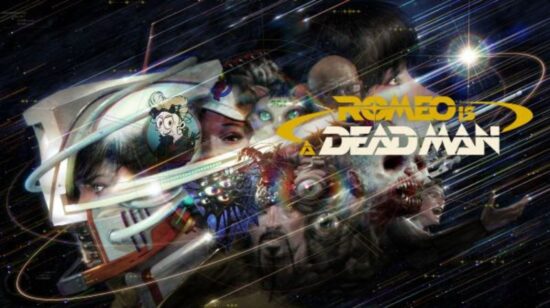INTERVIEW: Jesse Makkonen, A Veteran Horror Game Dev And Family Man


Finnish developer Jesse Makkonen, 35, is a name that should be familiar to any gamers with an interest in indie horror, as his debut game in 2014, Silence of The Sleep, was well-received for its atmosphere. This was followed in 2015 by DISTRAINT and its sequel in 2018, Heal in 2020, and most recently AfterDream in 2023.
His upcoming game, Without a Dawn, is slated for release on May 19, 2025, on PC and will feature his trademark combination of psychological horror and eerie, dreamlike ambience.
Makkonen got his start in audiovisual communications before becoming a full-time game dev in 2014. We wanted to know more about him and his approach to being an indie developer. Here’s what he said in a recent interview with Eneba Independent Gaming News.
Q: As you develop everything for your games yourself, I’d like to start by focusing on the graphic side of things: what caused you to develop the very distinctive pseudo-ASCII style for Without a Dawn?
A: The art style of Without a Dawn came from experimenting. Under the hood, the game is purely pixel art. You can turn off the texturing in the game to reveal pixel art. I can’t remember exactly how I ended up doing the number texture, but I remember I was playing around with shaders and ended up doing a rough demo, and it instantly clicked: that would be the default art style of my game.
That meant some redoing as I had already started development, but luckily, I found the style in relatively early stages. I like experimenting with the art style. Most of the time, nothing comes of it, but sometimes, I find something cool to use.
Q: You’ve spoken at length about what inspires you, including The Shining, Twin Peaks, and progressive metal bands. How much are you still inspired by the same things, and what is it about these sources of inspiration that speak to you as a creative person?
A: The same things still inspire me for sure. I like moody and intriguing stuff, something that makes me think. I love things with an intense atmosphere. I’m also a big fan of dark humor, which can be found in most of my games. It’s fun to create something dark and sort of “break” the scene with something oddly funny.
Q: Along with being a full-time game dev, you’re married with two kids. How do you manage to achieve a healthy work/life balance?
A: I hope I manage *laughter*! Well, when I started, I was driven by inspiration, which helped me work very long days. After a few releases and more experience, I started treating game development more as a work than a hobby, so it’s relatively easy to keep weekends off and spend time with the family.
Although I must admit, it was very intense creating Without a Dawn. It remained in my head during my free time and strongly affected my mood. Maybe my next game will be something colorful and happy.
Q: What would you say are the main advantages and disadvantages to working as an indie dev?
A: Working solo is great, most of the time. I love the freedom it offers and wouldn’t change it for anything. Freedom to work when I want, make design choices, etc. At the same time, I’m responsible for all the aspects of game development, which can be super overwhelming.
There’s not much socializing either when you’re developing alone. Luckily, we have monthly game dev meetings in my town, so I get to talk and share a drink with the local developers.
Q: You worked with publishers for your previous games: how much impact does this have on the actual creative process? Do you have a publisher lined up for Without a Dawn?
A: Publishers I’ve worked with never demanded anything extra. That said, I had complete control and freedom to develop the game how I wanted. I don’t have a publisher for Without a Dawn. Initially, I was going to pitch my game to publishers, but Without a Dawn is a very personal game, and it made sense that I’d self-publish. I hope to find a console publisher at some point, though!
Q: How do you, personally, measure success, and what does success mean to you?
A: I’ve never had a great release. Most of my game releases have been pretty bad. One day, having a successful release would be awesome and maybe even earned. Anyway, even though the releases haven’t been good, people are still buying my games when they’re heavily discounted, and this has provided me for the past eleven years.
I consider the fact that I can work full-time creating games to be a minor success. Let me tell you, it’s not an easy scene to survive in. So, as long as I can keep doing what I love… I think that’s the answer right there.
Q: What’s your take on the current state of the industry? At both the AAA and indie levels.
A: Currently, it’s very difficult to survive, let alone prospect in the gaming industry. Too many games are being released, so we’re now competing with player’s time. It doesn’t help that we’ve services like Game Pass, where you can play AA and AAA games almost for free. So yeah, it’s pretty tough out there, but everything is possible, which is encouraging.
Q: I’d like to circle back around to game assets as I appreciate you always make it clear that your games are handcrafted with no cheap asset flips. There’s always some news about devs (indie and AAA) using AI in their games, so in which ways do you think AI will continue to impact game development over the next few years?
A: I think there’s a somewhat negative stigma associated with using AI-generated assets in games, which is good. I feel AI should be doing boring rather than creative tasks. I hope AI will be somehow monitored, otherwise we’re going to get even more games released yearly.
I wouldn’t rule AI out, though! It can be a great help in many smaller tasks. For example, I’m writing with Grammarly, which can help me fix my writing and give me suggestions. I don’t know how it all will play out, we have to wait and see.
Q: How do you stay motivated to finish a game? And, are there any projects you’d like to come back to, or find another use for?
A: I’ve been burnt out a few times. It’s such a nasty feeling, and it takes time to recover. I can’t force inspiration, so it’s incredibly difficult to overcome if I hit that wall with my projects. Every project has some moments and struggles, and that’s normal and to be expected, but that soul-crushing feeling, “I can’t do this anymore,” is something I can’t force myself through and wouldn’t want to.
It’s a huge shame to spend months and months developing something and finding out that this project isn’t the right project for me. Luckily, I always learn something from these failed projects and can reuse some assets or mechanics I’ve created.
Q: When you release Without a Dawn, how do you plan to celebrate? Do you have a tradition you follow whenever you put a new game out into the world?
A: I will likely have a glass of whiskey and, if the release goes well, a cigar. I might host a release party soon after, but that’s something I’ll think about closer to the release.

















